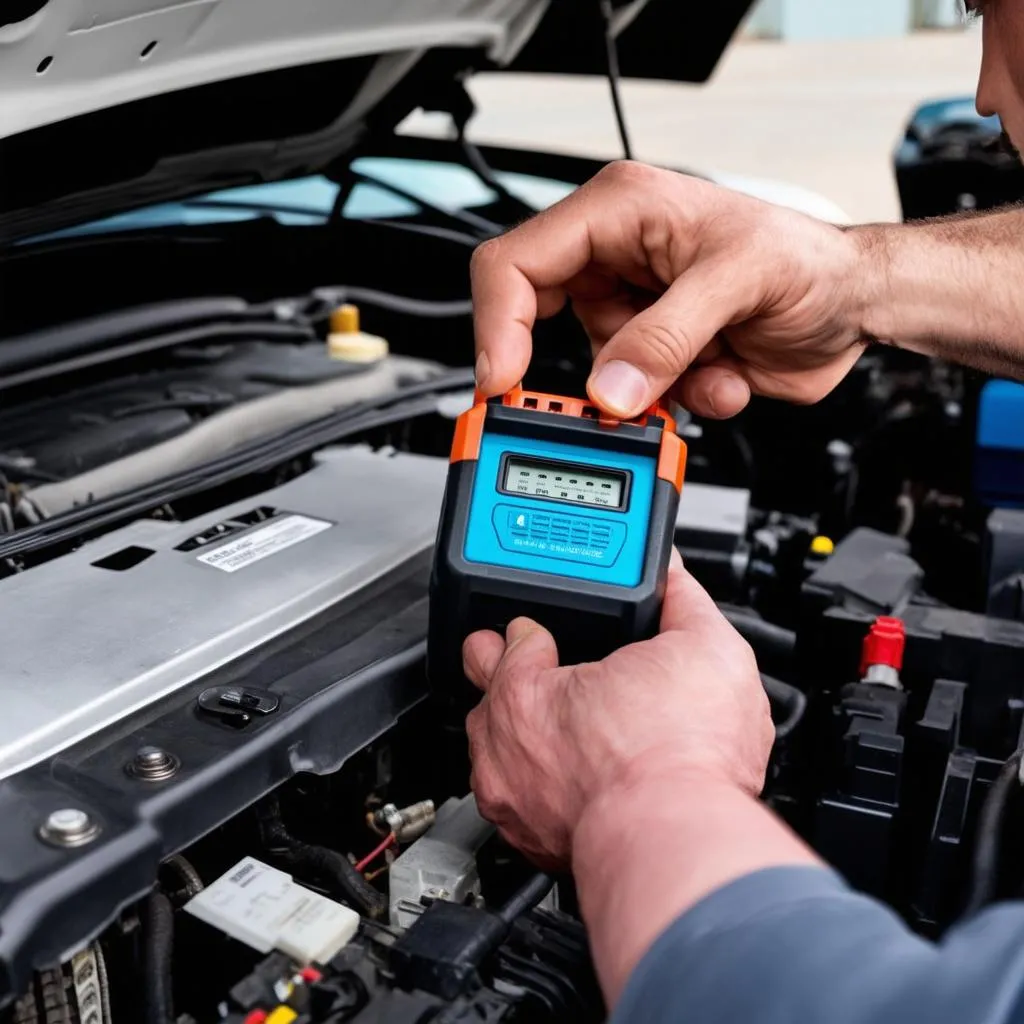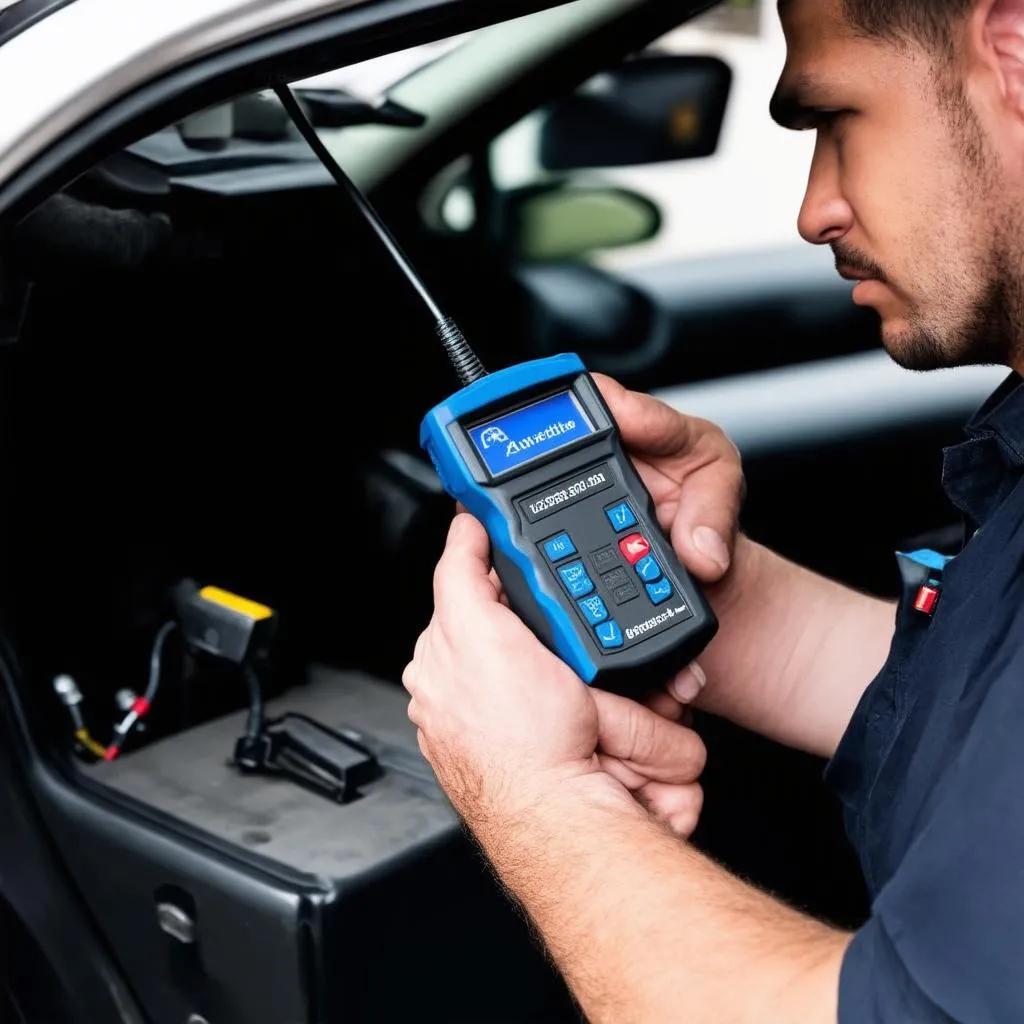Ever heard of a car’s “brain” and wondered how it works? It’s called the Engine Control Unit (ECU), and it’s like the car’s computer, managing everything from fuel injection to ignition timing. The OBD (On-Board Diagnostics) port is your window into the ECU, allowing you to see what’s happening under the hood and even make adjustments. But what happens when the OBD port itself becomes a barrier, preventing you from accessing the ECU? That’s where the term “Bypass Obd” comes in.
Understanding the Importance of Bypass Obd
From a Mechanic’s Perspective
Think of it like this: you’re a mechanic working on a patient who’s experiencing a heart attack. You need to access the patient’s heart, but there’s a blockage in the way. This is where the bypass comes in – you bypass the blockage to reach the heart and treat it. Similarly, a “bypass OBD” allows mechanics to access the ECU even when the OBD port is malfunctioning, locked, or simply inaccessible.
From a DIY Enthusiast’s Perspective
Have you ever wanted to tinker with your car’s settings or install custom parts? Many DIY enthusiasts use diagnostic tools to modify their car’s performance. However, some cars have restrictive security measures that can prevent access to the ECU. A “bypass OBD” can unlock these restrictions, giving you the freedom to customize your car to your liking.
From a Security Expert’s Perspective
While “bypass OBD” can be beneficial for mechanics and enthusiasts, it also presents security vulnerabilities. Criminals could exploit this technique to bypass anti-theft systems and steal vehicles. This is why it’s crucial to understand the ethical and legal implications of “bypass OBD” before attempting it.
What is Bypass Obd?
“Bypass OBD” refers to techniques that allow access to a vehicle’s ECU without using the standard OBD port. This could involve:
- Direct ECU Access: Connecting directly to the ECU’s wiring harness, bypassing the OBD port entirely.
- Hardware Bypasses: Utilizing specialized devices or cables that physically bypass the OBD port’s security measures.
- Software Solutions: Using software programs that manipulate the ECU’s software or firmware to disable security protocols.
How “Bypass Obd” Works
Imagine you’re trying to open a door with a complicated lock. A “bypass OBD” is like finding a hidden keyhole or using a master key to unlock the door. It allows you to bypass the standard locking mechanism and access the door (in this case, the ECU) directly.
A Case Study: The “Immobilizer Bypass”
Take the example of “immobilizer bypass,” a common type of “bypass OBD” technique. Immobilizers are anti-theft devices that prevent a car from starting unless it recognizes the correct key. However, some mechanics use “immobilizer bypass” techniques to bypass the immobilizer and start the car without the original key. This is often necessary for situations where the key is lost or damaged.
Common OBD Bypass Techniques
Here are some examples of common “bypass OBD” techniques:
- OBD Port Relocation: Moving the OBD port to a hidden location, making it harder for unauthorized individuals to access.
- OBD Port Deactivation: Disabling the OBD port altogether, effectively blocking any communication with the ECU.
- ECU Reprogramming: Flashing the ECU with modified software that removes security protocols and allows access to restricted features.
Ethical Considerations
While “bypass OBD” offers advantages, it’s essential to consider the ethical implications.
“Bypass Obd” and Car Theft
As mentioned earlier, “bypass OBD” techniques could be exploited by criminals to bypass anti-theft systems and steal vehicles. This is a major concern, especially with the rise of vehicle theft in recent years.
“Bypass Obd” and Warranty
Manipulating a vehicle’s ECU, particularly without the manufacturer’s authorization, could potentially void your car’s warranty.
Legality of “Bypass Obd”
The legality of “bypass OBD” can vary depending on your location. Some countries prohibit modifying a vehicle’s ECU without the manufacturer’s consent, while others have less stringent regulations.
Safety Considerations
“Bypass OBD” techniques can be risky if not performed correctly. If you attempt to modify your car’s ECU without proper knowledge and experience, you could potentially damage the ECU or cause serious problems with your car’s performance.
FAQs
What are the risks of bypassing the OBD port?
The risks of bypassing the OBD port include damage to your car’s ECU, loss of warranty coverage, and potential legal ramifications. It’s crucial to weigh the risks and benefits before attempting to bypass the OBD port.
Is it legal to bypass the OBD port?
The legality of bypassing the OBD port varies depending on your location. It’s essential to research your local laws and regulations before attempting to bypass the OBD port.
Can I bypass the OBD port myself?
While it’s possible to bypass the OBD port yourself, it’s generally not recommended unless you have extensive experience with automotive electronics and programming.
How do I find a reputable mechanic to bypass the OBD port?
If you require a “bypass OBD” service, it’s essential to find a reputable mechanic who specializes in automotive electronics and has experience with “bypass OBD” techniques.
OBD Port Bypass Tools
There are a variety of OBD port bypass tools available on the market, including:
- OBD Port Relocators: These devices allow you to move the OBD port to a hidden location.
- OBD Port Deactivators: These devices disable the OBD port, preventing communication with the ECU.
- ECU Flashing Tools: These tools allow you to reprogram the ECU with modified software.
OBD Port Bypass: A Balancing Act
“Bypass OBD” techniques are a double-edged sword. They offer valuable solutions for mechanics and enthusiasts but also present potential risks and ethical concerns. Before attempting to bypass the OBD port, it’s crucial to carefully weigh the risks and benefits.
 OBD Port Bypass Tool
OBD Port Bypass Tool
 OBD Port Deactivation
OBD Port Deactivation
Contact Us for Expert Assistance
If you require assistance with OBD port bypass techniques or any other automotive diagnostics needs, don’t hesitate to contact our team of experts at Whatsapp: +84767531508. We offer 24/7 support and expert guidance to ensure your car’s safety and performance.
Do you have any other questions about “bypass OBD” or automotive diagnostics? Share them in the comments below!
We hope this article has shed light on the complex world of “bypass OBD”. Remember, knowledge is power. By understanding the risks and benefits, you can make informed decisions regarding your car’s maintenance and modifications.